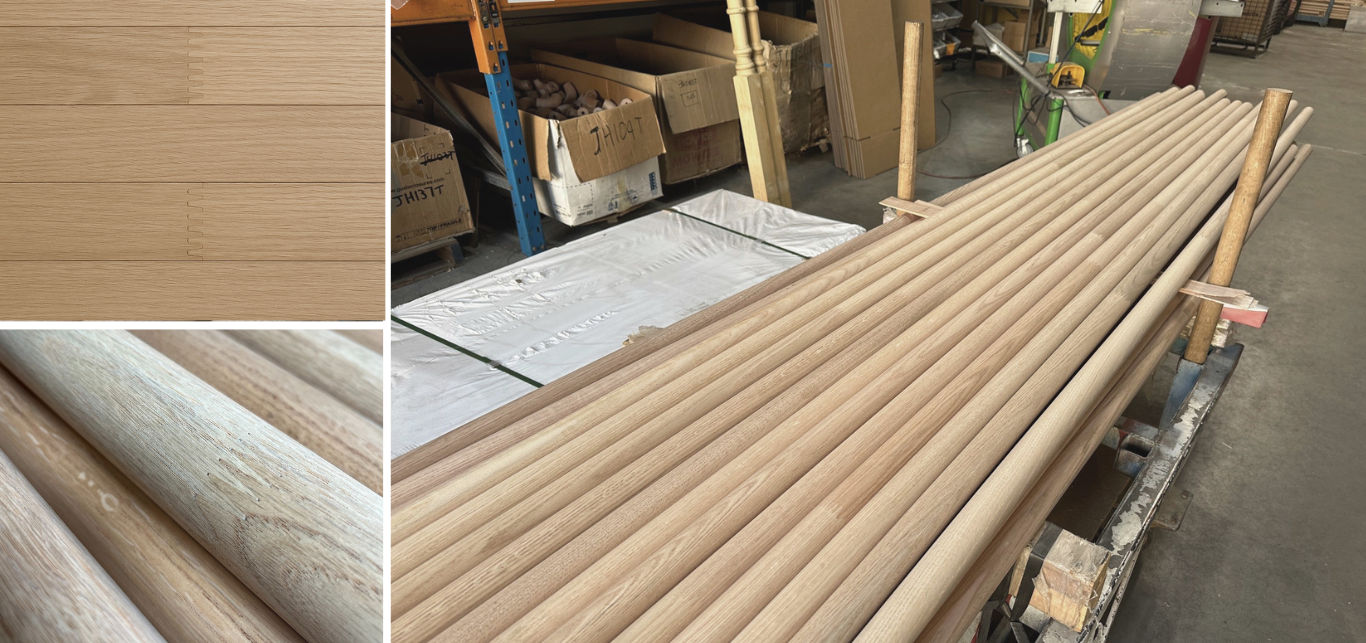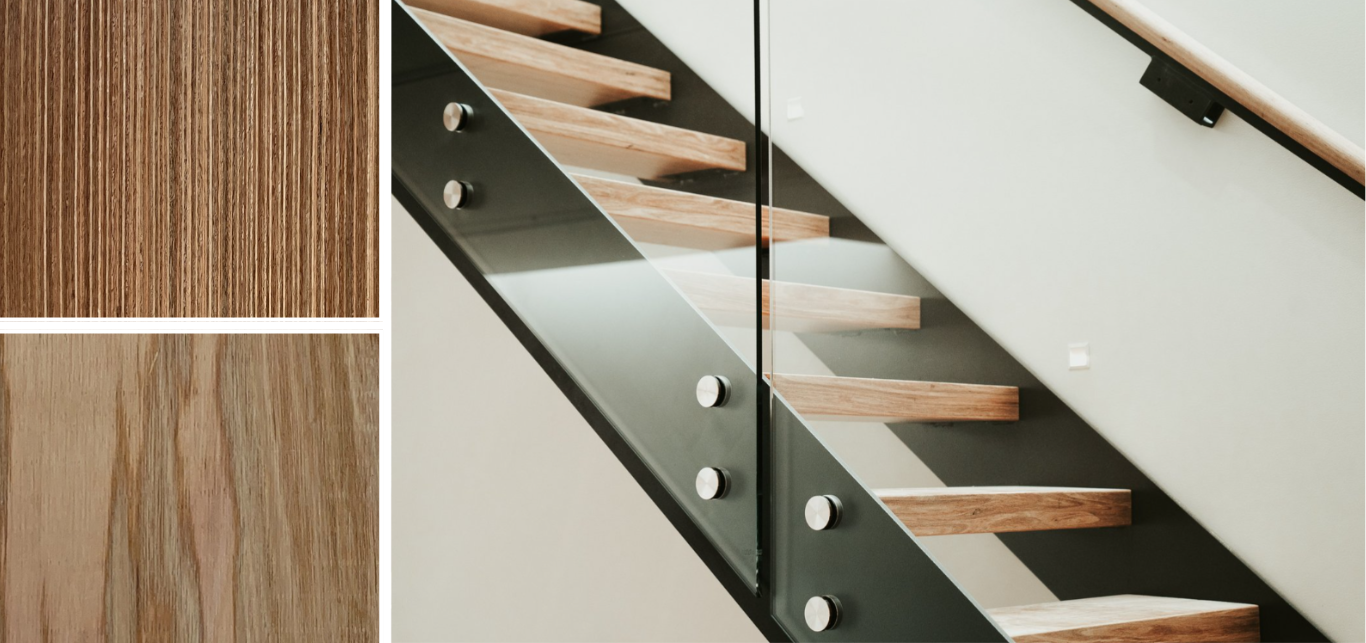Madie Wray
November 20, 2022
What Kind Of Wire Cable Is Best For Balustrading?
Choosing the right balustrade wire for your next DIY project may seem simple, but with so many different kinds of cables and ropes available it can be hard to know where to start. Believe it or not, there’s also a lot riding on choosing the right wire cable. After all, using the wrong product can be extremely detrimental to your project: resulting in everything tea staining to rust and corrosion! Choose the wrong wire… and you might as well be throwing money down the drain.
So… which wire should you be using then?
The best kind of wire cable to use for balustrading is a 1x19, 316-grade stainless steel cable. It is water resistant, easy to maintain and suitable for both internal and external use. 1x19 wire also has a more polished finished than 7x7 or 7x19 configurations, giving your balustrading a cleaner, more put-together appearance.
It’s important to note however that 1x19 wire is not compatible with every balustrade system on the market, as it is not particularly flexible. Therefore, where tight loops or bends need to be made (such as when using Kit D or E), the 7x7 wire configuration should be used instead.
Below, we’ve broken down exactly why the 1x19 stainless steel wire is best for balustrading, and where you can find it!
Related Reading: Step By Step Guide To Wire Balustrade
Which Wire Should You Use For Balustrading?
Material - 316 Stainless Steel
316 Stainless steel, also known as marine grade stainless steel, is a highly corrosion & water resistant material - perfect for use outdoors and in seaside locations. This natural corrosion resistance also makes it easy to maintain and clean. A bi-yearly polish is all you need to keep your wire balustrade looking brand new!
More importantly, most wire balustrade fittings are also made from 316 stainless steel, so it’s important not to mix metals & keep your balustrade materials consistent. Mixing metals can lead to a multitude of issues, such as rusting and corrosion. This chemical reaction can happen in as little as 2-3 weeks, and cannot be corrected after the fact. If you have noticed tea staining or corrosion on your wire balustrading wire, this is likely due to mixing metals. This is also why we recommend using stainless steel post with your wire balustrading, as opposed to galvanised steel or aluminium.

If you would like to read more about the properties, or chemical makeup of 316 stainless steel you can do so here.
Size: 3.2m Diameter
The size of your wire balustrading wire is determined by two things:
- The distance between your intermediate posts; and
- The availability of fittings
If you are not limited by the spacing of your intermediate posts (read more about this here), 3.2mm cable is the obvious choice. Compared to 4mm wire, there are 10x more kits to choose from, and hundreds of additional fittings! Not only does this give you more options aesthetically, but also functionally. For instance Kit P self adjusts to any staircase or ramp angle; meaning you don’t need to drill holes on an angle.
Visually, 3.2mm wire rope is also less obtrusive than 4mm cable. It’s more streamlined, and won’t obstruct the view off your deck, balcony or porch! It’s really a win-win.
Configuration: 1 x 19
We’ve written an entire article on the difference between 7x7 and 1x19 cable, but to summarise: 1x19 cable looks nicer and is easier to clean than the 7x7 configuration. Below, you can see just how significant the visual difference really is:

In addition to the visual difference, there’s also a structural one. 7x7 wire is made 49 small strands of wire (7 lots of 7) combined to make one cable. Whereas 1x19 is made up of 19 individual strands.
Generally speaking, a 1x19 cable is less flexible than 7x7 or 7x19 cables, and as a result, cannot be used in certain situations.Namely, when the cable needs to make a particularly tight turn- such as around a loop or thimble.
When To Use 1x19 Stainless Steel Cable
Unfortunately, despite all it's benifits, 1x19 cable is not compatible with every wire balustrading kit/sysyem. As mentioned above, it simply isn't sutable for use with thimbles (which are included in some of our wire balurading kits). To help determine whether 1x19 cable is right for you, we’ve drawn up a helpful table:
| Kit | 1 x 19 Cable | 7 x 7 Cable |
|---|---|---|
| Kit A | Yes - Recommended | Yes |
| Kit B | Yes - Recommended | Yes |
| Kit C | Yes - Recommended | Yes |
| Kit D | No | Yes - Recommended |
| Kit E | No | Yes - Recommended |
| Kit F | Yes - Recommended | Yes |
| Kit G | Yes - Recommended | Yes |
| Kit H | Yes - Recommended | Yes |
| Kit J | Yes - Recommended | Yes |
| Kit J | Yes - Recommended | Yes |
| Kit L | Yes - Recommended | Yes |
| Kit M | Yes - Recommended | Yes |
| Kit N | Yes - Recommended | Yes |
| Kit P | Yes - Recommended | Yes |
| Kit Q | Yes - Recommended | Yes |
| Kit R | Yes - Recommended | Yes |
| Kit S | Yes - Recommended | Yes |
| Kit T | Yes - Recommended | Yes |
| Kit U | Yes - Recommended | Yes |
| Kit V | Yes - Recommended | Yes |
People Also Read

Australian Made Sustainable Timber Alternatives | Working With Crafted Hardwoods
Over the last 80 years, Hammersmith has had the privilege of working alongside countless Australian-owned and operated businesses: from stairbuilders, to timber merchants, to furniture makers.

What is Finger-jointed Timber?

What is EWP Timber / Engineered Wood Product?
EWP (Engineered Wood Product) is real timber! It is made by stacking and gluing together multiple thin layers (or veneers) of solid timber on top of one another, usually with the grain running in the same direction. These layers are then compressed and glued together to form a strong, stable, and uniform piece of timber that can be used in visible, finished applications, such as stair treads, handrails, and wall panelling.


